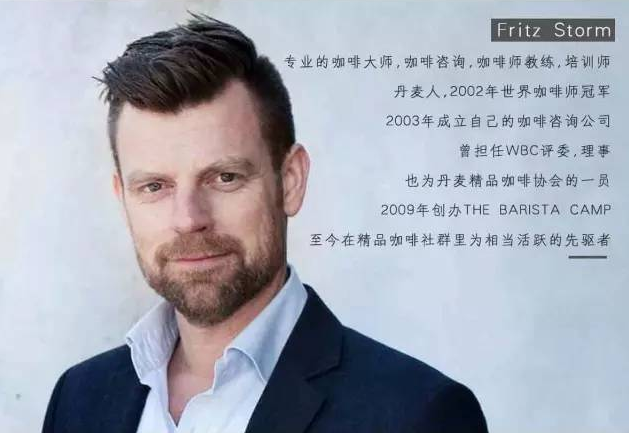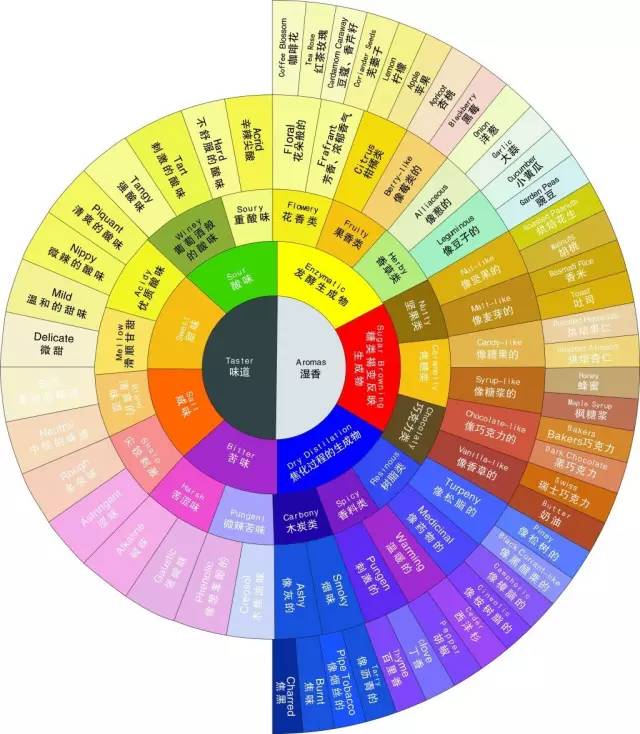Do you know the meaning of the coffee certification logo?
Follow the caf é (Wechat official account vdailycom) and found that Beautiful Cafe opened a small shop of its own.
Logos such as direct trade, fair trade, social security and sustainable development certification are now essential labels for coffee trade, but do we really understand the meaning of these logos?
Can we use quantitative analysis to determine whether coffee meets the "social security" certification requirements? How many coffee supply chains around the world are involved in "direct trade" agreements? If coffee meets the requirements of "sustainable development certification", is it really conducive to the prosperity and development of the local human society? As ordinary consumers, we pay more attention to these logos than ever before, but do we really understand what these expressions mean for the origin of coffee? We are exposed to more and more "sustainable development" and "social security" coffee, but the ecological environment of coffee origin continues to deteriorate, and the local social and economic pressure is still increasing. Realizing the importance of such problems is only the first step, what we need to do is to really understand the cause and significance of these certification marks, so as to protect the sustainable and healthy development of coffee origin with more reasonable consumption behavior.
There are many forms of social investment in the coffee industry, among which the return investment in coffee producers is considered to be the most effective way, but how to make good use of these funds to maximize the efficiency of funds remains to be discussed. Traditionally, the best way to support growers of origin is to involve them in "fair trade" certification. In recent years, more and more roasters have begun to visit the country of origin, to cooperate face to face with growers, and to determine the trade price of coffee in an open and transparent manner. in this process, non-profit organizations play an important role. It is their unremitting efforts that make the ecological and social development of coffee origin unfold in front of the world. The best example is Grounds for Health, which works to improve the environment of technical facilities for residents of origin and to detect and treat uterine cancer for local women.

In the past few years, a number of ecological and human environmental assistance projects of origin have been successfully organized within the industry. from 2005 to 2009, we participated in the Pediatric Cardiac surgery Assistance Program in India. We worked with the Narayana Health Foundation and coffee exporters in southern India to perform free cardiac surgery for local children every Christmas, by working closely with local exporters. We have effectively ensured the transparency and credibility of aid projects.
In 2011, with the support and help of Fairtrade certified manufacturer Cooperative Cafe Timor (CCT), we set up a newborn service centre in the town of Loana, a remote suburb of East Timor. With the support of CCT organization and funding, the project was successfully carried out. At the same time, local growers are getting more favorable coffee prices due to the support of Fairtrade certification, so CCT has more money to invest in the project. We are pleased to see that the project is still working well and, according to statistics, has served more than 2.1 million local mothers and newborns in East Timor.
Each project has its own unique characteristics, and the organizational structure and funding sources of the project are also different, but their successful operation is based on the strong support of local organizations. Without the help of local organizations and consumers' attention to the ecological and cultural environment of the place of origin, these projects cannot be carried out, and we cannot guarantee the transparency and credibility of the operation of the project.
Of course, maintaining the operation of these projects requires a lot of money and manpower, and the key to the success of non-profit organizations lies in the continuous funding and support from the outside world. Recently, the Coffee Kids Project, a well-known non-profit organization in Chicago, USA, has organized an aid project, which aims to help improve the living conditions of coffee growers and their families. In order to ensure the successful operation of the project and ensure the financial returns of relevant stakeholders, Coffee Kids must establish a sound and transparent organizational structure. Considering the scale of the existing coffee industry, many non-profit organizations have chosen to provide special assistance, such as programs to improve the lives of ethnic minorities in their places of origin.
The most famous non-profit organization in the world coffee industry is Fairtrade international. In addition to setting the minimum transaction price, Fairtrade provides additional financial support to certified coffee producers, which must be reinvested in projects such as improving the social, economic and ecological environment of the place of origin, improving the living conditions of growers, pickers and their families, and the right to use this additional income is in the hands of each grower and picker. In addition to the internal management system, Fairtrade will set up a local management platform to find and solve unsolved social and ecological problems. Since coming to Australia, we have established close cooperation with Faidrade and co-organized and operated several assistance programs around the world. In our view, Fairtrade is one of the most effective ways for roasters and consumers to repay coffee growers.
One of the core principles of Fairtrade is that special assistance to a particular producer is not allowed. To receive assistance, the country of origin must have a sound producer alliance or organization to ensure that more growers and producers benefit from it, but as many bakers choose to cooperate with independent plantations, they do not fully enjoy the welfare policies of Fairtrade.
Other certification systems, such as Rainforest Alliance Certification and UTZ Certification, seek benefits for origin by providing baking and capacity-building for growers, which provide services to both producer alliances and independent growers. Both certifications are designed to help local growers and producers and their families improve their living conditions, but they do so in different ways, with the Rainforest Alliance only for environmental protection and UTZ for sustainable planting technologies. These organizations have a complete transnational management system, which can ensure the transparency and credibility of aid projects. But like Fairtrade, these organizations need huge financial support, so it doesn't make much sense for small and micro bakers with limited financial capacity.
The "Direct Trade Bureau" model has become more and more popular in recent years, especially in the boutique coffee industry. "Direct trade" agreements can help producers reap high benefits from certain batches of high-quality coffee, but the problem is that the standards of the premium coffee industry are erratic, the roasters' choices change, and growers cannot be guaranteed. Like other large certification systems, the "direct trade" model does not apply to all growers and producers of origin.
There are different ways to invest in the coffee industry, and depending on the size and duration, you can choose the right channel to ensure that your investment can actually fall into the hands of producers. When choosing channels, we must pay attention to the transparency and credibility of the channels. In addition, we also need to consider the future direction of the funds invested. Once the initial aid projects are completed, how will the remaining funds be used? It is important to remember that most of the people we assist live in third World countries, their available resources are very limited, and the existing social welfare systems in developed countries are not necessarily applicable to coffee countries of origin. Each aid project needs to be adjusted and changed according to the local social development situation. As consumers, our actions are generous and respectable, but if our investment does not work, everything will be in vain.
Important Notice :
前街咖啡 FrontStreet Coffee has moved to new addredd:
FrontStreet Coffee Address: 315,Donghua East Road,GuangZhou
Tel:020 38364473
- Prev

World champion Fritz Storm tells you why boutique coffee is so expensive for consumers.
Following Kaiping (Wechat official account vdailycom) found that Beautiful Cafe opened a small shop of its own. Why is boutique coffee so expensive for consumers? Is it acceptable and sustainable to sell in a coffee shop five times more expensive than a supermarket? Let the world champion Fritz Storm tell you 1.-Talking about pricing. Why does specialty coffee have
- Next

Coffee flavor wheel: bitter and salty, sour and sweet
Following Cafe Review (Wechat official account vdailycom) found that coffee has only four water-soluble tastes: sour, sweet, bitter and salty, so the taste spectrum is not as complicated as the smell spectrum described in the previous chapter. Some sour and new aromatic compounds are only volatile and need to be identified by aversion, while others are not volatile, only water soluble, and need to be identified by taste buds.
Related
- What is the meaning of lactic acid fermentation with coffee bean treatment?
- How to judge the state of foam by sound?
- How does the latte pull out the unicorn pattern? Come to get for a little trick to improve the flower pull!
- Will flower pulling affect the taste of the latte?
- Do you know the history of coffee?
- The difference between honey treatment and sun washing what is raisin honey treatment?
- What kind of milk can a novice use to make coffee foam to keep the foam longer? The correct method and skills of milking tutorial sharing
- Why do washed coffee beans taste sour? Flavor characteristics of washed Coffee
- Introduction to the skill of how to practice the size and height of water injection around the circle of hand-brewed coffee
- How do beginners practice coffee flower drawing from scratch?

